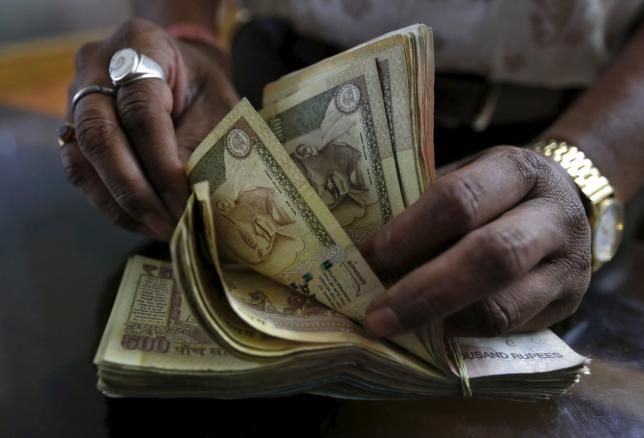
'For a country like India, making fiscal policy one of the pillars of the growth and development strategy is crucial.'
'It is important to have a fiscal policy that is counter-cyclical.'
'There needs to be a culture of trust in the tax administration and a high degree of compliance.'
India’s fiscal deficit target of 3.5 per cent of gross domestic product for 2016-17 is based on realistic revenue projections, says Vitor Louca Rabaca Gaspar, director, fiscal affairs department at International Monetary Fund.
He tells Dilasha Seth that public investment in infrastructure has a positive impact on economic growth.
Excerpts:
Finance Minister Arun Jaitley has decided to stick to the fiscal consolidation path for 2016-17. Do you believe the fiscal deficit target of 3.5 per cent of the GDP it is based on credible revenue estimates?
Our understanding at the IMF is that the government is well on track to do the Budget execution for 2015-16, of 3.9 per cent and 3.5 per cent for 2016-17, which, in our view, is based on realistic revenue projections.
For a country like India, making fiscal policy one of the pillars of the growth and development strategy is crucial.
Do you think India’s fiscal deficit is on the higher side? Do you see an urgency to bring it down, considering the global economic uncertainty?
If you think about the balance between expenditures and revenue in India, there is a significant gap, which for many years has been at seven per cent of the gross domestic poduct.
If you look at long-term, you expect this gap to significantly narrow; so the fiscal policy can perform the role of stabilising the economy and underpin the strategy of growth and development.
How do you think India can lower its fiscal deficit?
GST (goods and services tax) in the pipeline is designed as a value added tax and it has three very important characteristics.
One, it is based on a wide tax base and a very reliable and reasonable revenue-neutral source.
Second, the GST promises to contribute substantially to integration of India’s economy.
Third, it is a competitiveness-friendly tax as it allows for deductions.
The government is keeping up the capital expenditure to spur growth. How important is it?
It is important to improve the quality of spending. Here, the example is infrastructure investment.
India will be the most populous country in the world by 2030 and we need to think about rural population in India now in the process of urbanisation.
At the same time, you have infrastructure gaps in water, sanitation, electricity, transport, roads or railways.
 How relevant is it for India to keep up public spending, despite challenges from the fiscal front?
How relevant is it for India to keep up public spending, despite challenges from the fiscal front?
When you look at expenditure, it is important to recognise that in India, public and private investments are complementary in nature.
A recent IMF study has documented three important findings.
First, in India, public investment has a positive impact on economic growth.
Second, in India, public investment is complementary to private investment. It is not substituting for the lack of private investment.
On the contrary, by boosting spending, the state is creating conditions that will allow private investment to recover.
Third, when infrastructure spending is well targeted and projects are taken into completion, the impact of public investment is very favourable.
How do you look at the National Investment and Infrastructure Fund?
NIIF is a good idea. But, it is very early to say how well it works.
The Goods and Services Tax legislation is stuck in Parliament. . .
The potential of GST is substantial, but it is not a panacea.
How do you look at the one-time income disclosure schemes India has been announcing?
Such schemes are one-off and not structural responses.
The systemic aspect is tax compliance.
There needs to be a culture of trust in the tax administration and a high degree of compliance.
The government is considering a re-look at the Fiscal Responsibility and Budget Management targets and it may examine the option of a range instead of a fixed target. How relevant is that?
When you think of conducting fiscal policy and come up with rules and procedures, you have to take a systemic view.
It is not about focusing on a number versus being flexible.
It is important to have a fiscal policy that is counter-cyclical.
The conduct of fiscal policy is rooted in political realities; it is not an abstract exercise grounded on reason.
The top image is used for representational purpose only. Photograph: Reuters












 © 2025
© 2025